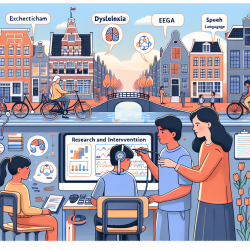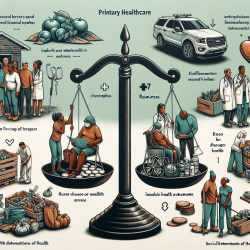The adoption of eHealth, which utilizes information communication technologies (ICT) for health service delivery, has the potential to significantly improve access and quality of healthcare, especially in rural and remote areas. Despite its benefits, uptake in allied health fields like speech pathology, physiotherapy, and occupational therapy has been slow. This blog explores key findings from the research article, "A scoping review of Australian allied health research in eHealth," and provides actionable insights for practitioners.
Understanding the Research
The study conducted a comprehensive review of 44 studies from January 2004 to June 2015, focusing on the use and attitudes towards eHealth among Australian allied health professionals. The professions included were:
- Audiology
- Dietetics
- Exercise Physiology
- Occupational Therapy
- Physiotherapy
- Podiatry
- Social Work
- Speech Pathology
Key Findings
The review revealed that while eHealth trials showed comparable outcomes to face-to-face services, clinicians were hesitant to adopt these technologies for service delivery. Here are some critical takeaways:
- Most eHealth trials were in speech pathology and physiotherapy, showing that eHealth can be as effective as traditional methods.
- Clinicians primarily used ICT for administrative tasks and professional development, not for client services.
- Clients had a more positive attitude towards eHealth compared to clinicians, indicating a gap in perception.
Actionable Insights for Practitioners
To bridge the gap and enhance the adoption of eHealth in allied health services, consider the following steps:
- Embrace Change: Shift your perspective from using eHealth to replicate existing practices to exploring its potential to revolutionize service delivery.
- Client-Centered Approach: Focus on understanding and meeting client needs and preferences, which are generally positive towards eHealth.
- Professional Development: Engage in continuous learning and training to improve your eHealth skills and knowledge.
- Advocate for Support: Work with policymakers and stakeholders to ensure adequate ICT support and infrastructure.
Encouraging Further Research
While the existing research provides a solid foundation, there are areas that require further investigation:
- Address clinician concerns about privacy, continuity of care, and the quality of patient-practitioner relationships.
- Explore the client experience in real-world settings, particularly in rural and remote areas with variable internet speeds.
- Investigate innovative eHealth practices that can deliver unique benefits to both providers and recipients.
By embracing eHealth and advocating for comprehensive research, we can unlock its full potential to deliver high-quality, accessible allied health services.
To read the original research paper, please follow this A scoping review of Australian allied health research in eHealth.










